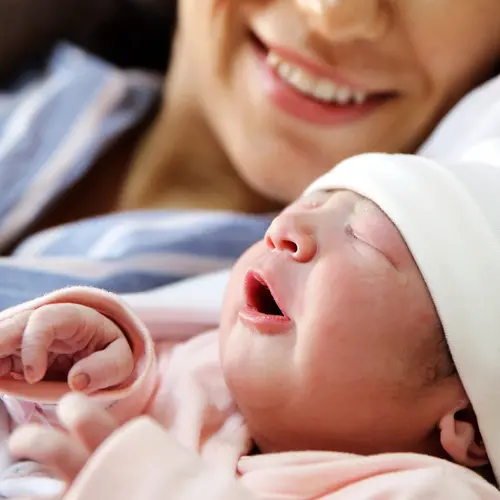Postpartum depression awareness is on the rise, and with good reason -- one in nine women deal with it after giving birth. But depression during pregnancy is still often overlooked, even though it happens just as much as the postpartum kind.
One of the biggest reasons for this is that many of the physical symptoms of pregnancy and depression are the same. Those symptoms can range from a change in appetite and problems concentrating to fatigue, insomnia, and even aches and pains, says Veerle Bergink, MD, PhD, of the Icahn School of Medicine at Mount Sinai.
"The complicated thing about depression during pregnancy is that your body is changing so much already," she says. "You're already feeling atypical."
And though some practitioners may make a point to ask questions about your mood, depression screening isn't a routine part of prenatal care. "There has been much more attention on postpartum depression," says Bergink, a professor in her school’s departments of psychiatry and obstetrics, gynecology, and reproductive science. "It's much more common to screen for that than prenatal depression, even though it would actually be more logical to start screening when women first come into the office during pregnancy."
Your health history can make it more likely you’ll get depression during pregnancy, so knowing your risk going in can help you be on high alert. The biggie? Previous rounds of depression or anxiety. "The number-one risk factor for both depression during and after pregnancy is women who have had a mood episode before," says Bergink.
Thyroid disorders can up your chances, as can illness, preeclampsia, or finding out about abnormalities on an ultrasound. Nonphysical risk factors include financial problems, a history of trauma or sexual abuse, an unstable relationship, or an unwanted pregnancy.
Though realizing you're dealing with depression can be a hurdle, Bergink says once you do, it's very treatable. "Because all medication passes through the placenta, we prefer to look for non-medication options first, such as exercise and behavioral changes through psychotherapy," she says. But for more serious bouts, medications like antidepressants can be safe.
Also key to recognizing and working through depression: being open and honest about how you're feeling. "So many women feel guilty, especially during pregnancy, because they think they should be feeling happy," says Bergink. But, she says, depression isn't something you choose to have, and you can't blame yourself for having it. The more women share their struggles, the less hidden prenatal depression will be.
4 Questions
Bergink offers these questions as a way to find out if you or someone you know may be depressed during pregnancy.
Do you enjoy the things you normally enjoy? If you're not finding happiness in your usual pleasures, that's a clue something's off.
How's your mood most days? It's called depression for a reason -- feeling low or "flat" is typical of depression.
What kinds of symptoms have you been dealing with lately? Insomnia, fatigue, loss of appetite, trouble concentrating, aches, and even crying spells can crop up in both pregnancy and depression.
Do you feel depressed? Often, the simplest question is the most accurate.
Find more articles, browse back issues, and read the current issue of WebMD Magazine.


